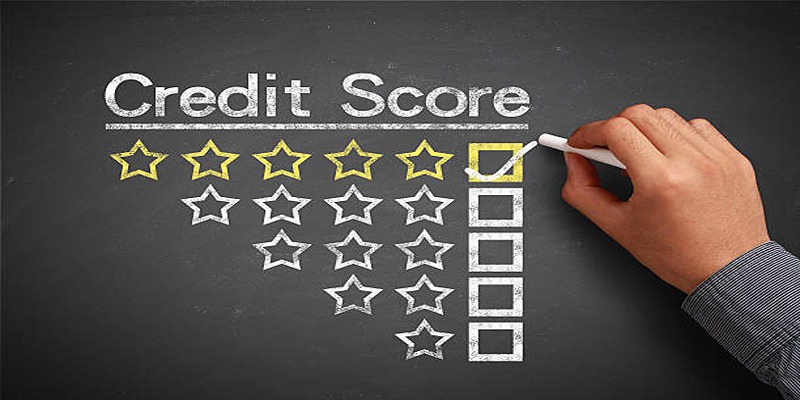Secured business loans are a great way for business owners to get the funds they need by using an asset as collateral. Whether it's to grow a business, buy new equipment, or manage cash flow, these loans provide a reliable solution. This guide will walk you through everything you need to know about secured business loans, making the process simple and helping you make the best decision for your business.
What is a Secured Business Loan?

A secured business loan is a type of financing that requires the borrower to provide collateral in order to secure the loan. This collateral can be in the form of real estate, equipment, vehicles, or any other valuable asset that the lender deems acceptable. If the borrower is unable to repay the loan, then the lender has the right to seize and sell the collateral to recoup their losses.
Eligibility Criteria for Secured Business Loans
To qualify for a secured business loan, there are certain eligibility criteria that businesses must meet. These may include:
- A strong credit score: Lenders will typically look at the credit score of both the business and its owners to determine their creditworthiness. A higher credit score may result in better loan terms and interest rates.
- Proof of collateral: Secured loans require collateral. Businesses must have assets that can be used as collateral for the loan.
- A solid business plan: Lenders may also ask for a detailed business plan outlining how the funds from the loan will be used and how it will generate revenue to repay the loan.
Why Get a Secured Business Loan?
There are several advantages to getting a secured business loan for your company.
- Lower interest rates: Since these loans are secured with collateral, lenders consider them less risky and can offer lower interest rates compared to unsecured loans.
- Higher borrowing limits: With the security provided by collateral, lenders may be willing to offer larger loan amounts compared to unsecured loans.
- Easier approval process: For businesses with less-than-perfect credit scores, getting a secured business loan can be easier than securing an unsecured loan.
- Improve credit score: Making timely payments on a secured loan can help improve your credit score, making it easier to secure future financing for your business.
Types of Secured Business Loans
There are several types of secured business loans available depending on the needs and circumstances of your business. Some common types include:
- Equipment loans: These loans are used to purchase equipment for your business, such as machinery or vehicles. The purchased equipment acts as collateral for the loan.
- Real estate loans: Also known as commercial mortgages, these loans are used to finance the purchase or renovation of a property for your business. The property serves as collateral for the loan.
- Invoice financing: This type of loan uses outstanding invoices from customers as collateral. Lenders will typically advance you a percentage of the invoice amount and then collect payment directly from your customers.
- Inventory financing: Similar to invoice financing, this type of loan uses your inventory as collateral. It can be a good option for businesses with high inventory turnover.
Steps to Apply for a Secured Business Loan
- Determine Loan Needs: Clearly define how much funding you need and the purpose of the loan.
- Assess Collateral: Identify assets you can use as collateral to secure the loan.
- Compare Lenders: Research and compare lenders to find terms that best suit your business.
- Gather Documentation: Prepare necessary documents such as financial statements, tax returns, and business plans.
- Submit Application: Complete the loan application accurately and submit required documentation.
- Review Terms: Carefully review the loan terms before accepting to ensure they meet your needs.
- Sign Agreement: Once approved, sign the loan agreement and any other necessary documents.
- Receive Funds: Upon signing, funds will be disbursed to your business account.
- Make Timely Payments: Ensure you make payments on time as per the agreed terms to maintain a positive relationship with your lender and avoid penalties or potential harm to your credit score.
Tips for Getting Approved
- Have a Solid Business Plan: Lenders want to see that you have a clear and realistic plan for using the funds and generating profits.
- Maintain Good Credit: A good credit score shows lenders that you are responsible with managing your finances and are likely to make timely payments.
- Provide Collateral: Offering collateral, such as property or equipment, can increase your chances of approval as it reduces the lender's risk.
- Seek Help from a Loan Broker: Loan brokers can help match you with the right lender who specializes in loans for businesses like yours.
- Be Prepared to Explain Your Finances: Be ready to provide detailed information about your business's financials, including revenue, expenses, and projections.
Alternatives to Secured Business Loans

While secured business loans can provide a viable option for funding your business, there are also alternatives that you may want to consider. These alternative options include:
- Unsecured Business Loans: Unsecured loans don’t require collateral, making them a flexible option for borrowers. Instead, lenders assess the borrower’s creditworthiness and repayment ability to approve the loan.
- SBA Loans: The U.S. Small Business Administration (SBA) provides various loan programs with lower interest rates and better terms for small businesses.
- Business Line of Credit: A business line of credit allows you to borrow funds as needed, up to a specified limit, making it a flexible option for managing cash flow and unexpected expenses.
Conclusion
Choosing the right financing option is essential for the success and growth of your business. By understanding the types of loans available, such as unsecured loans, SBA loans, and business lines of credit, you can make an informed decision that aligns with your financial needs and long-term goals. Always evaluate factors like interest rates, repayment terms, and your business's specific requirements to ensure you secure the most suitable option.












